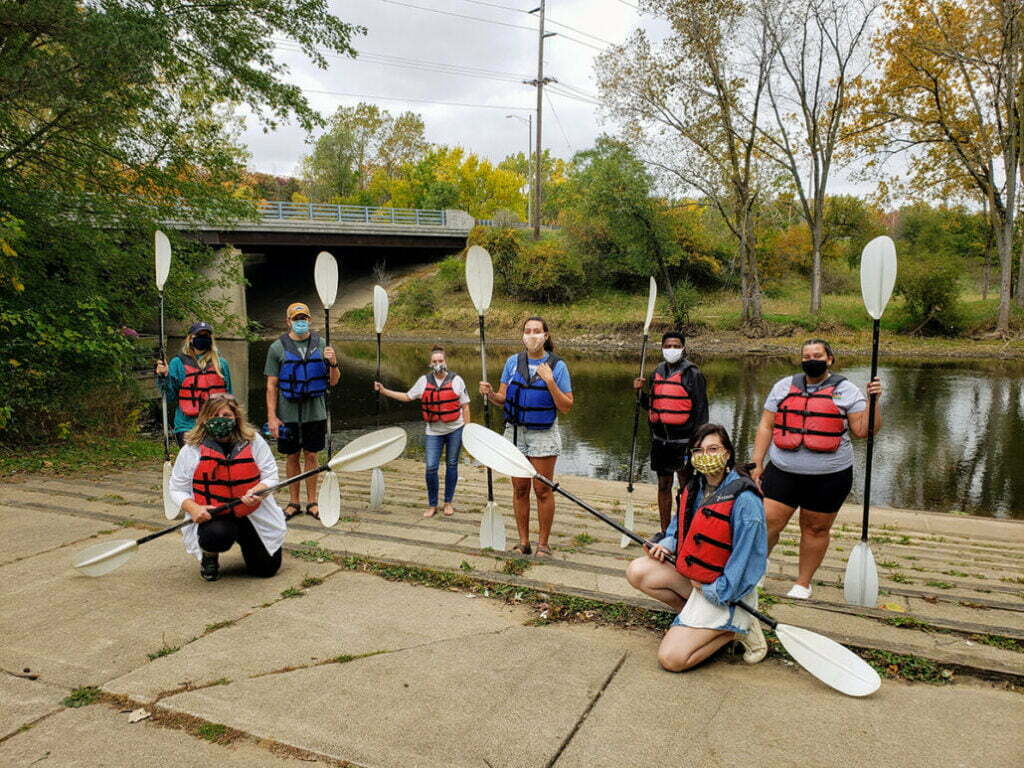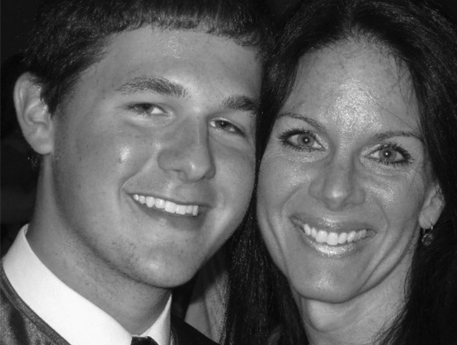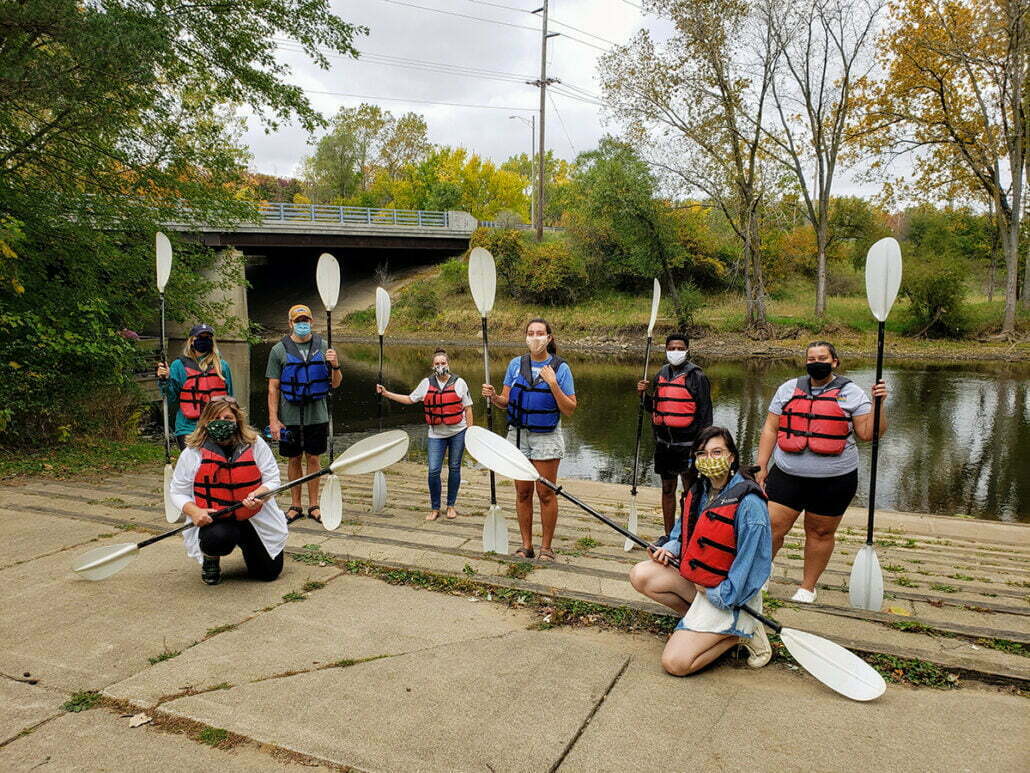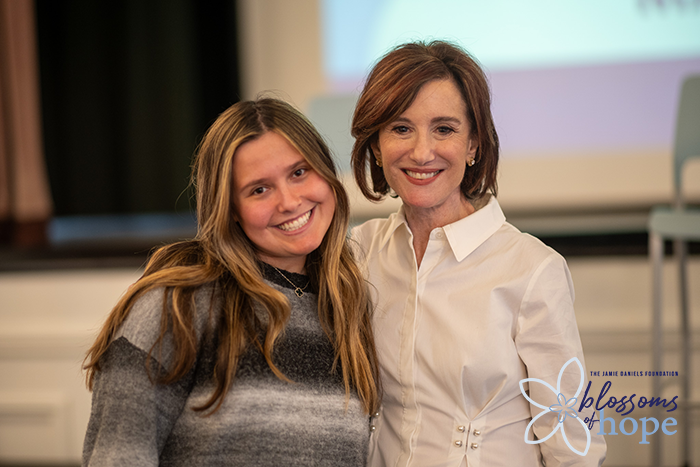
MSU’s CRC spends an afternoon kayaking in 2020
By Dawn Kepler, Collegiate Recovery Community Coordinator, Health Promotion Department, Michigan State University
Michigan State University’s Collegiate Recovery Community (CRC) and Recovery Housing programs aim to provide a safe and supportive campus community in which students in recovery from addiction can achieve their academic, personal, and professional goals.
The support and grant funding from the Jamie Daniels Foundation and The Children’s Foundation since 2019 have been an important part of our ability to continue and expand support for students in recovery at MSU. This has been especially true over the course of the COVID-19 pandemic, which has been a particularly challenging time for young people navigating substance use disorders.
The pandemic has been an isolating experience, and isolation is the risk factor most often cited by MSU’s students in recovery. In addition, research has demonstrated that the presence of peer support is the most important factor in a young person’s ability to maintain sobriety (Kelly, Stout, Greene, & Slaymaker, 2014). As a result, we have seen students struggling to stay engaged with resources to support their recovery and mental health. The grant from the Jamie Daniels Foundation and the Children’s Foundation have helped keep our students in Recovery Housing connected and supported by a live-in Recovery Housing support specialist student position.
“At MSU, the CRC has been the foundation of my social life and growth, allowing me to meet amazing, likeminded, and supportive people,” said one CRC student. “I am very thankful for the CRC and all those who want to make it better.”
The Jamie Daniels Memorial Scholarship has also been a timely support. Job losses and unexpected moves home due to the pandemic added to the financial stress for college students in recovery. Often, these students use college savings to pay for the cost of treatment, are no longer eligible for federal financial aid as a result of past felony drug convictions or have other financial responsibilities that stand as barriers to affording higher education (Harris, Baker, Kimball, & Shumway, 2007).
There are over 150 collegiate recovery programs nationwide, and their continued growth is important because college students in recovery are often marginalized and underserved on campuses (Brown, Ashford, Thompson Heller, Whitney, & Kimball, 2018). In fact, research suggests that many students in recovery would not be enrolled in college (34%) and would not have selected their present institution (20%) had there not been a collegiate recovery community (Laudet, Harris, Kimball, Winters, & Moberg, 2016).
MSU’s CRC supports young people in and seeking recovery by providing dedicated recovery spaces on campus, raising the visibility of recovery while fighting the stigma associated with addiction, and developing recovery-oriented programming to meet identified student needs. Programming includes Recovery Housing, individualized recovery planning, weekly on-campus recovery meetings, 24-hour admittance to the CRC Student Lounge, counseling support, wellness and life skills workshops, community service opportunities, and organized sober activities.
When adequately supported, students in recovery are some of the most successful students on campus, as demonstrated by MSU’s Collegiate Recovery Community (CRC) students: 100% report cumulative GPAs above 3.0, and 50% have a 3.5 or higher (CRC program evaluation survey, 2020).
To learn more about MSU’s CRC, visit healthpromotion.msu.edu/recovery.








